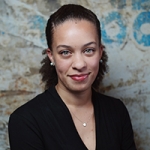
Emma Osore
Dismantling, Not Reinforcing, Privilege
Posted by Aug 02, 2016 0 comments

Emma Osore
Since 1988, the Diversity in Arts Leadership (DIAL) summer internship program, which I run as part of the Arts & Business Council of New York (which is part of Americans for the Arts), has cultivated hundreds of leaders from diverse backgrounds through placement with arts organizations across New York City. Many of our programmatic structures have been put in place precisely to dismantle privilege. We:
- pay interns a competitive stipend,
- provide subway transportation,
- select candidates from an urban, suburban, and rural nationwide pool, and
- select talented and proven people from underrepresented groups.
After reflecting on Americans for the Arts’ cultural equity statement and reading Darren Walker’s recent New York Times op-ed, "Internships are Not a Privilege," I came out with this question: How do I ensure the Diversity in Arts Leadership internship program does not reinforce privilege despite it being the very program meant to dismantle it?
Below are some observations and practical suggestions to deepen my commitment (and, I hope, the field's) to increased diversity, inclusion, and cultural equity.
Identify the demographic priorities and needs of the local field and actively address them.
Seeking national, regional, or local level employee demographic data, then addressing priorities head on.
Our story: In 2015, the NYC Department of Cultural Affairs studied the diversity of leadership at its cultural institutions and found, for example, that women are slightly overrepresented in arts leadership roles. This year, our intern class is 75% women. While women are underrepresented in leadership generally, 75% cisgender female representation in our cohort is not necessarily a primary need of arts organizations in our region and is also not reflective of the broader society in which we live. So, although counterintuitive, we must prioritize recruiting and selecting top talent actually representative of the gender spectrum.
Expose and address blind spots.
Increasing focus on diversification in underrepresented demographics and opening our eyes to demographic blind spots.
Our story: One way to increase a diverse candidate pool is to check our blind spots when hiring and programming. To do so, I revisited the section of the Americans for the Arts cultural equity statement outlining historically underrepresented groups. Our internship program already focuses on many of the groups listed; however, we probably fall short in programmatically being inclusive of people from a diversity of religions and disabilities. I’m not sure if each site visit was wheelchair accessible; I never checked whether interns were asked to attend mandatory events during iftar or Shabbat. Opening these questions and addressing them makes the internship more approachable to more people, increasing our probability of attracting and selecting the most diverse set of candidates possible.
How do I ensure the program that I manage does not reinforce privilege?
Assess self-reported data to more fully understand demographic diversity.
Blowing up the check box—allowing people to self-identify personal data to help represent the true diversity of a program and make for more accurate reporting.
Our story: Intern candidates completed demographic information aligned with the US Census. This year, we also asked the final cohort to self-identify race, gender, ethnicity, and sexual orientation in open fields. Instead of a general description like multiracial female we had responses of White? or Nigerian American or Half Irish/Half Taiwanese and womyn or cisgender female—illuminating a fuller spectrum of how people self-identify and providing a more accurate reflection of the diversity of our program.
Build the structures to advance the field.
Moving beyond diversity and working to strategically connect networks that address systemic issues and bridge gaps, helping us think about the bigger picture.
Our story: In our work in NYC and with data from the Hewlett Foundation, we know that there is a challenge not only with diversity but with a leadership bottleneck in the arts. We are developing stronger relationships with our local and Americans for the Arts' national emerging leaders network to brainstorm ways to usher recent graduates into local networks and create growth opportunities for mid-career professionals. We also share our internship hiring best practices with other arts organizations in NYC which strengthens the arts community as a whole in pursuing this work, even if it can be perceived as competition for our programming.
Dismantle the structures to advance the field.
Taking a hard look at dismantling or merging programming in order to undo structural inequities.
Our story: We work closely with Americans for the Arts' internship program, and although our two programs have different programmatic structures, we are both interested in developing a diverse workforce. Last semester, however, the Americans for the Arts interns were demographically homogenous (at least in how we currently define race and gender). Might the best practices from both internships be more closely tied (or merged)? At a certain point in its life span, is the separateness of diversity programming reinforcing status as a group of “others” or is it providing an enriched experience to address the issues for people from underrepresented groups? Probably both. So, this year, we brought interns together during a joint professional development session and have traditionally had a DIAL intern who is also an Americans for the Arts intern—proving alignment is possible.
I would like to say that this stuff isn’t easy, but, with the tips and stories above, I hope to have provided practical suggestions towards a more just society. By consciously and continuously identifying the needs of the field, exposing our blind spots, assessing our fuller diversity, and building and/or dismantling the structures that reinforce privilege, we can all take a little credit in the work of steering our society in a more equitable direction—even if we already think we are doing a good job.
